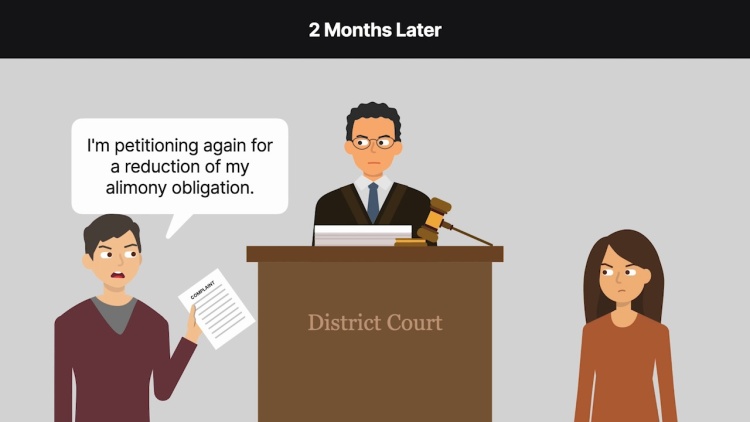Metcalf v. Metcalf
Nebraska Supreme Court
769 N.W.2d 386 (2009)
- Written by Brittany Frankel, JD
Facts
Rita Jo Metcalf (defendant) and Kenneth Metcalf (plaintiff) divorced in 1999. Upon divorce, Kenneth was ordered to pay Rita $2,000 per month in alimony for 120 months. Six years later, Kenneth filed a motion for reduction of his alimony obligation. Kenneth alleged that circumstances had changed, because his salary had decreased and Rita’s salary had increased. Following a hearing, the trial court denied his motion. Kenneth did not file an appeal. Two months later, Kenneth filed another motion for reduction of his alimony obligation. The evidence produced at the second hearing made it clear that both Rita and Kenneth were experiencing some degree of financial difficulty. Kenneth could not afford health insurance, had cashed in his retirement account, and had filed for bankruptcy. Rita had entered into various business endeavors and testified that she relied upon Kenneth’s alimony payments when entering those contracts. The trial court denied Kenneth’s second motion for failure to show a material change in circumstances. In making its decision, the trial court considered only the evidence related to the two months between the denial of Kenneth’s first motion and the filing of his second motion. Kenneth appealed, and the court of appeals affirmed. Kenneth appealed again.
Rule of Law
Issue
Holding and Reasoning (McCormack, J.)
What to do next…
Here's why 907,000 law students have relied on our case briefs:
- Written by law professors and practitioners, not other law students. 47,100 briefs, keyed to 996 casebooks. Top-notch customer support.
- The right amount of information, includes the facts, issues, rule of law, holding and reasoning, and any concurrences and dissents.
- Access in your classes, works on your mobile and tablet. Massive library of related video lessons and high quality multiple-choice questions.
- Easy to use, uniform format for every case brief. Written in plain English, not in legalese. Our briefs summarize and simplify; they don’t just repeat the court’s language.






